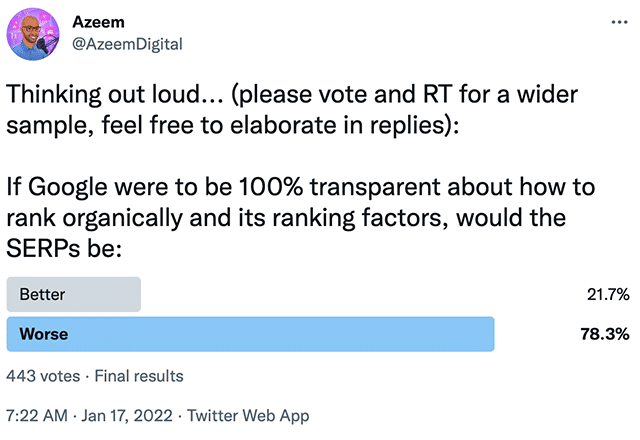Keeping users engaged on your website is vitally important, but Google says it doesn’t affect your rankings. I suspect they want it to, but they don’t have a good way to tie your site engagement to the rankings.
The problem for Google is two-fold:
- If you have Google Analytics on your website, which captures many of those engagement metrics, it doesn’t feed that back to Google for search rankings. Google has stated repeatedly that your data from Analytics doesn’t impact rankings.
- While Google Analytics is used on a lot of sites, there are millions that don’t use it. Google wants the rankings to be the best they can be, so if they gave more of a boost to sites with Analytics on them, that could make for a worse user experience.
Secondary benefits
While Google doesn’t use engagement metrics directly, you can still gain in the rankings if users are highly engaged. Those highly engaged users are more likely to search for brand-related queries in the future, and they’re also more likely to link to your site and reference it from other places on the internet, which can have a big impact on your rankings.
Really, though?
There are some people that don’t believe this, and think that Google must be using Analytics data at least a little bit. While I’m convinced that they don’t, I certainly don’t have any hard proof so there’s always a chance.
Similar to my “Facebook still isn’t listening to you” post, I’ve done my research and I’m happy with my conclusion, but there is a chance I’m wrong and I’m willing to listen. If you find info that shows how Google might be using engagement to directly impact rankings, please let me know.
Until then, keep working on your website engagement, but consider it mostly a separate task from any search engine optimization work that you might be doing.


